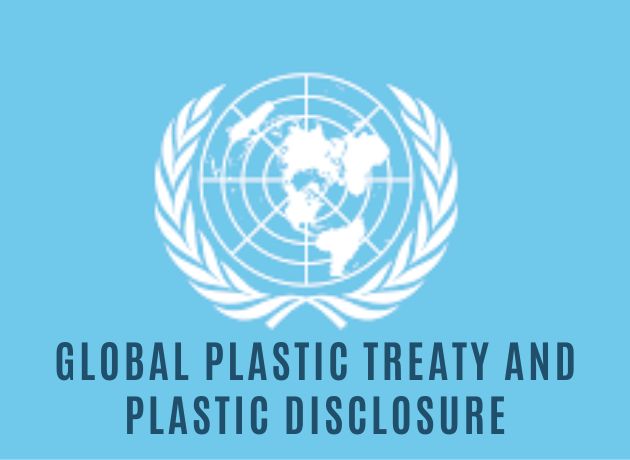
Submitted by isil.oral on June 6, 2023
The process for the creation of a Global Plastics Treaty commenced last year, with the historic UN Environment Assembly Resolution to End Plastic Pollution establishing an Intergovernmental Negotiating Committee (INC) to develop an internationally legally binding instrument on plastic pollution by 2024.
This expansion and the Global Plastics Treaty come at a critical point: whilst plastic pollution threatens the world’s terrestrial, ocean and freshwater ecosystems, marine plastic pollution is expected to triple over the next twenty years under a business-as-usual projection. If growth in single-use plastic production continues at current rates, they could account for five to 10 per cent of the world’s greenhouse gas emissions by 2050.
Plastic pollution is detrimental to our ecosystems, economies, communities, and CDP is committed to leveraging our well-established global disclosure platform to enable transformative and ambitious private sector action. Earlier this month, CDP expanded its disclosure platform to invite almost 7,000 companies for the first time. As part of our work to harness transparency and accountability to drive action on the plastic pollution crisis at scale, CDP also attends INC-2.
INC-2 will represent a key moment in the international negotiation process for UN member states to start building consensus on the core elements that the Treaty should include. At the same time, this development is creating a growing awareness of the impacts of plastic among companies, financial institutions and consumers alike.
During the negotiations, CDP’s Global Director, Policy Engagement and External Affairs, Pietro Bertazzi, will be presenting at an official Side Event to the negotiations, where he will share with the delegates the importance of scaling plastics disclosure, and the catalytic role that provisions around mandatory corporate plastics disclosure can play in the Global Plastics Treaty.
The Global Plastic Treaty negotiations present an important opportunity to address plastic pollution, and mandatory disclosure is a mechanism that will be crucial to the achievement of its objectives. Together, CDP, The Pew Charitable Trusts, Minderoo Foundation and the Ellen MacArthur Foundation believe that the Global Plastics Treaty must include language covering mandatory plastics disclosure.
Plastic-related disclosure at scale will be the foundation of transformative action to end plastic pollution and waste. Regulation at the national level is vital to enable effective private sector action, but policies must be informed by clear, comprehensive, comparable data on the production, use and disposal of plastics across the global economy, along with the financial, commercial, and legal impacts, opportunities and risks that plastic pollution entails.
This will support shifts in capital and development of evidence-based policies – both fundamental elements of the whole-economy transformation required to end the plastic pollution crisis. Disclosure is also essential for tracking progress toward national and international goals and commitments, making it critical to the achievement of the Global Plastic Treaty’s objectives.
The UK Government has pledged 2.4 million in support of the Global Plastics Treaty, which will see its third and final International Negotiating Committee session held in Nairobi in December. Exactly what will materialise from the negotiations is yet to be seen, but what we do know is that the foundations are in place for disclosure to bring much-needed transparency and accountability to forthcoming global corporate commitments. We have the tools, the momentum and the buy-in for corporate action on plastic pollution – now we need to cement mandatory corporate plastics disclosure as a core mechanism of the Global Plastics Treaty to ensure that this ambition turns into action.





